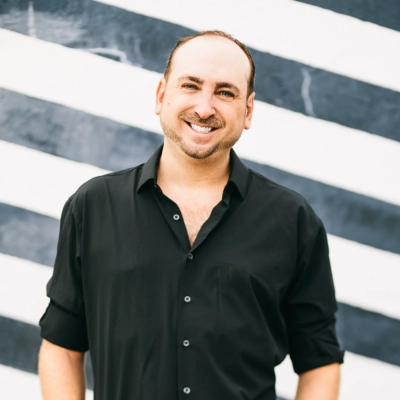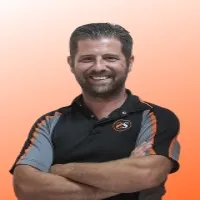What Risks Have You Taken that Paid Off for Your Business?
Ever wondered what bold moves business leaders make to achieve extraordinary success? In this article, insights from a CEO and a Founder showcase the daring decisions that transformed their ventures. Discover how expanding services to include arborist consulting initiated significant growth and how investing in a unique game engine created unparalleled opportunities. Read on to explore all seventeen expert insights that could inspire your next big leap.
- Expanding Services to Include Arborist Consulting
- Pivoting to Business Coaching
- Investing in a Unique Game Engine
- Introducing a Freemium Model
- Switching to Value-Based Pricing
- Buying Distressed Properties During Housing Crisis
- Specializing in Complex Foreclosure Properties
- Focusing Solely on SEO Services
- Hiring Top-Tier Talent Early
- Bootstrapping New Horizon Home Buyers
- Betting on the Gig Economy
- Partnering with Local Small Businesses
- Developing Custom Software Solution
- Investing in Direct Mail Campaigns
- Pivoting to Handwritten Notes Business
- Buying a Larger Commercial Building
- Expanding Online Presence Early
Expanding Services to Include Arborist Consulting
One of the biggest risks I took for Ponce Tree Services was expanding our services beyond basic tree trimming and removal to include specialized arborist consulting, such as tree health assessments and preservation plans. It was a bold move because it required additional certifications, such as becoming a TRAQ certified arborist, which involved both time and financial investment. However, my years of experience in the tree care industry, starting at just 10 years old and learning alongside my father, gave me the confidence to take this leap. I knew that with my background and my understanding of trees and customer needs, this diversification could set us apart in the DFW area.
The gamble paid off significantly. Not only did we attract clients who valued expert knowledge, such as municipalities, property developers, and homeowners with valuable trees, but it also positioned us as leaders in the field. Expanding into consulting elevated the reputation of Ponce Tree Services, allowed us to charge premium rates for specialized services, and built a new revenue stream that wasn't as reliant on seasonal demand. What encouraged me to take this leap was my firm belief in continuous learning and leveraging my qualifications to deliver unmatched value. This decision also aligned with my passion for tree preservation and gave our company a distinct advantage in a competitive industry.

Pivoting to Business Coaching
One of the biggest risks I took in business was pivoting from running my telecommunications company, which had achieved significant success, to becoming a full-time business coach. At the time, my company had grown to 30 employees and was generating millions in revenue. Walking away from that stability to start coaching others was a major leap into the unknown. However, the decision was encouraged by a growing demand from fellow entrepreneurs who sought my advice. They saw the systems I had built to streamline operations, improve team productivity, and scale revenue, and they wanted to replicate those results in their own businesses. My military training in telecommunications and leadership, combined with an MBA in finance, gave me the confidence to package my strategies into a replicable framework that could help others succeed.
What solidified the decision was my belief in solving real-world problems for business owners. One of my first clients was a struggling manufacturing business in Australia that was operating at a loss. Applying my expertise, I streamlined their recruitment process, optimized their workflows, and identified revenue leaks. Within six months, the business turned a profit and achieved higher efficiency. That success, coupled with dozens of similar transformations since, proved that my risk was worth it. My years of experience taught me to trust my skills and insights, knowing that calculated risks when backed by a solid plan are the foundation of growth.
Investing in a Unique Game Engine
One risk I took that really paid off was investing in developing a unique game engine for our platform. Early on, it seemed like a huge gamble. We had a smaller team, limited budget, and the tech was untested in the competitive gaming market. I was driven to make the leap after seeing how player expectations were shifting. To stand out, we needed a system built for flexibility and performance. Having control over our own engine meant we could design a custom experience and make ongoing updates that aligned perfectly with our vision, something that existing solutions couldn't offer. It wasn't an easy journey, but the payoff was worth it. The custom engine boosted game performance, improved player retention, and allowed us to roll out new features much faster. It also saved us licensing costs in the long run. It reinforced my belief that sometimes, taking a calculated risk and betting on your own capabilities can lead to a significant return.
Introducing a Freemium Model
Introducing a freemium model for Toggl Track was a bold step in the early days. Offering premium features for free felt risky, but it drove massive user adoption. By scaling through accessibility, we built a loyal customer base who later converted. Today, our freemium strategy remains a key part of our growth engine. Sometimes, giving value first earns trust that pays dividends.
Adopting the freemium model was inspired by the need to build user trust first. In a crowded market, we needed to prove value before asking for payment. Other successful SaaS companies showed how freemium models could scale effectively. Belief in long-term relationships over short-term revenue gave us confidence to try. That faith in accessibility as a strategy paid off over time.
Switching to Value-Based Pricing
The biggest risk that made over my consulting practice was when I completely walked away from hourly billing toward value-based pricing, wherein it charges based on measurable impact and not time spent. Clients were struggling to justify consulting fees as they were getting mediocre results, clearly not serving anyone well. This meant imagining engagement anew. Instead of measuring increment by increment, every six minutes, we were extremely focused on defining success metrics beforehand and only taking on projects for which we could deliver 5-10x ROI. Our proposals became strategic - more focused on the desired future state for the client rather than on deliverables and timelines. Within six months, our average project value had tripled while client satisfaction reached all-time highs. We attracted more ambitious clients pursuing transformation rather than incremental improvements. Most importantly, everyone's incentives were in line - we only succeeded when our clients achieved meaningful results. The key insight was to realize that businesses don't want consulting hours - they want better results. Traditional billing creates artificial constraints that work against achieving those results. Tying fees directly to outcomes forced us to think differently about delivery. Sometimes the riskiest move is to maintain the status quo when it's clearly not optimal. The key is to identify what truly matters to clients and being willing to completely reimagine how to deliver it.

Buying Distressed Properties During Housing Crisis
I risked my savings and reputation by buying distressed properties during the 2008 housing crisis when everyone else was running away from real estate. What encouraged me was seeing good homes in great neighborhoods being overlooked just because of market fear, and I knew these properties had long-term value. Looking back, this decision helped establish our company's foundation - we turned those properties around, helped families find affordable homes, and built trust in our community during tough times.
Specializing in Complex Foreclosure Properties
Taking on complex foreclosure properties when everyone else avoided them turned out to be our biggest breakthrough at Ready House Buyer. I remember our first major foreclosure flip - it needed serious work and most investors passed, but we saw potential where others saw problems and invested heavily in renovations. That project not only doubled our expected return but also established us as specialists in distressed properties, leading to over 100 successful flips and counting.

Focusing Solely on SEO Services
I learned the value of specialization when I decided to focus solely on SEO instead of being a full-service digital agency, even though it meant potentially losing some clients. The decision was scary because we had to turn down well-paying web design projects, but I believed deeply in becoming the best at one thing rather than average at many. This focus allowed us to develop unique SEO strategies that increased our clients' organic traffic by 5X, and we actually ended up attracting more high-value clients who specifically wanted SEO expertise.

Hiring Top-Tier Talent Early
One big risk we took was doubling down on hiring top-tier talent before we were technically ready. It stretched our budget at the time, but we knew having the right people in place would help us grow faster and deliver better results for clients. What pushed us to take the leap? Seeing how much potential work we were leaving on the table by trying to do too much ourselves. The payoff? A surge in client satisfaction, more referrals, and a stronger team that could handle scaling without burning out. Sometimes, betting on talent is the best investment you can make.

Bootstrapping New Horizon Home Buyers
I learned the power of bootstrapping when I started New Horizon Home Buyers without any outside funding - it was scary, but I knew relying on loans would limit our flexibility. Using my savings and focusing on strategic marketing, I managed to flip our first few properties by carefully selecting projects that needed minimal upfront investment while maximizing potential returns. Looking back, starting small and reinvesting profits was the best decision, as it taught us crucial cost management skills and allowed us to grow sustainably to where we are now, operating across six states.
Betting on the Gig Economy
One risk I took that paid off significantly was betting on the gig economy when traditional business models were the norm. Creating Gig Wage came from recognizing the inefficiencies in paying gig workers. Instead of following the crowd, I trusted my instincts and knowledge of payroll tech to craft a solution.
In fact, working with a security services firm, they mentioned finding us after extensive search efforts—they called us their "unicorn." This kind of organic find validated my belief that focusing on enhancing payment experiences for contractors was a gap worth filling. Companies ranging from education platforms to hospitality staffing have praised our efficiency, which helped them reinvest in growth.
What encouraged me to take this leap was my diverse background, from playing professional basketball overseas to leading tech projects like at Kairos. Seeing the opportunity to solve real-world problems and being driven by the potential to empower independent workers were key motivators. Taking a different path was risky, but transformative.

Partnering with Local Small Businesses
One of the most significant risks I took was shifting Summit Digital Marketing's focus to partner closely with local small businesses and e-commerce brands aiming for aggressive growth. The goal was to help companies achieve $100K/month and beyond through targeted SEO and paid ad strategies. At the time, it meant dedicating resources to build highly personalized strategies, which could have limited our scalability.
What encouraged me was seeing the massive potential for improving our clients' ROI when we adapted our strategies specifically for their business models. One client, Calvary Church Naperville, experienced a 1,000% increase in their Google Ads CTR under our guidance. By focusing on measurable results and quick implementation, we could replicate these successes across diverse industries.
This risk paid off by establishing a reputation for achieving tangible results, which significantly contributed to Summit generating over $1.7B in client revenue collectively. It taught me that identifying and addressing unique business needs in a client-focused manner can catalyze both client success and your own growth.

Developing Custom Software Solution
I've gotten into a huge risk early on when I developed a custom software solution instead of using off-the-shelf tools for everything. These off-the-shelf tools worked just fine; however, they did not fully meet the needs of our company. Building something from scratch, it requires larger upfront costs and more time to spend. However, in just one year after implementation, it has already streamlined workflow and reduced human error, saving us thousands in operating costs. Listening to my team made me take this leap. They said their frustrations were born out of the existing tools' limitations, and they had ideas for improving them. If their insight was trusted and tailor-fitted, it would create something valuable to the long-term competitive advantage. My advice? If a solution feels "good enough" but still creates inefficiencies, it might be worth the initial discomfort to explore an alternative.

Investing in Direct Mail Campaigns
I risked almost all of our marketing budget on direct mail campaigns when digital ads weren't working well, which felt crazy since everyone said direct mail was dead. The mailers ended up bringing in triple the leads compared to our online efforts, and now it's our main lead source - though I definitely lost sleep during those first few weeks waiting for responses.

Pivoting to Handwritten Notes Business
One of the biggest risks I took was deciding to pivot from a traditional marketing agency model to a highly specialized niche business focused on handwritten notes. At the time, the market seemed oversaturated with digital communication methods, and many people doubted the lasting power of analog methods.
However, I believed in the power of human connection, and I saw an opportunity to leverage technology to scale something deeply personal. What encouraged me to take the leap was a mix of customer feedback, market research, and my own passion for creating something that could make an authentic impact in the business world.
The risk paid off significantly because it allowed us to carve out a unique space in the marketplace, offering something that felt both personal and innovative. It's a reminder that sometimes the biggest risks come with the greatest rewards when they align with what truly resonates with customers.
Buying a Larger Commercial Building
I was searching for a new commercial building for my business, and it was incredibly hard to find one that suited my needs. Unlike houses, commercial buildings vary a lot in size and features (i.e., loading dock, crane, sprinklers). After a long search, I came across a building that seemed way too big for what we needed, but it was in a great location and could work. It was about twice the size we were looking for. In the end, I decided to take the risk and buy the larger building. I'm so glad I did because, in less than four years, we ended up using all the space. If I had gone with a smaller building, we'd probably be looking for a new place already.

Expanding Online Presence Early
One risk that paid off significantly was expanding our online presence early on. While many traditional nursery businesses were still focusing heavily on in-person sales, I recognized the growing potential of e-commerce. At the time, it seemed like a leap of faith. We invested heavily in building a robust online store and marketing it to a wider audience, despite the uncertainty about how customers would respond to buying plants and trees online.
What encouraged me to take that leap was the growing trend of online shopping and the desire to make quality plants accessible to a broader audience. I saw it as an opportunity not just to grow our customer base but to redefine how people experience gardening and landscaping. The risk paid off when our online sales began to soar, and we saw an increase in both repeat customers and brand recognition. It was a reminder that sometimes, embracing change and trusting your instincts can lead to tremendous growth.








